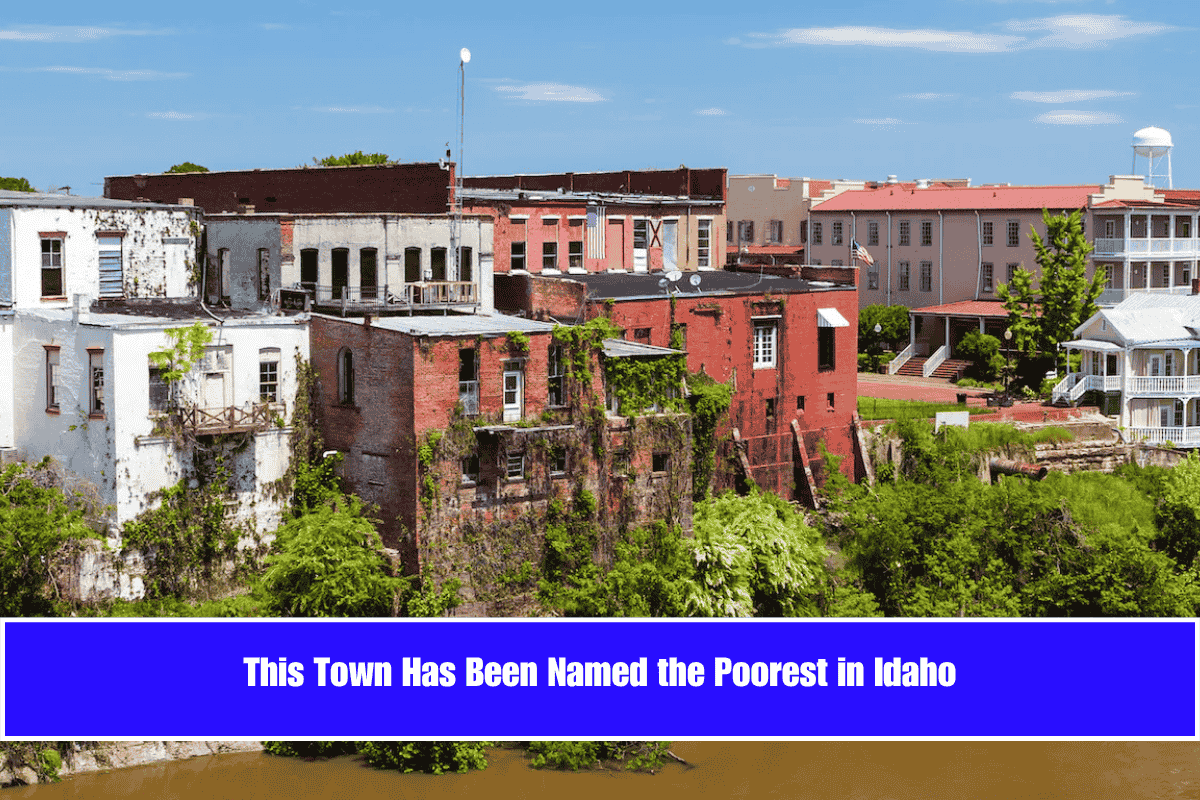Idaho, known for its picturesque mountains, outdoor activities, and agricultural landscape, is home to a variety of communities, each with its own unique story. However, one small town in the state has recently earned an unfortunate title: the poorest town in Idaho. While this may be a surprise to some, the title sheds light on economic challenges that many rural communities in the state are facing. Let’s explore which town holds this title and why it is struggling economically.
The Poorest Town in Idaho: Emmett
Emmett, a small town located in southwestern Idaho, has been recognized as the poorest in the state. As of the most recent census and economic reports, Emmett stands out due to its relatively low median household income and high levels of poverty. Situated just 30 miles northwest of Boise, the state’s capital, Emmett has faced economic struggles that are common in many rural areas across the U.S.
Economic Struggles in Emmett
Emmett, once a thriving agricultural community, has seen its economy decline over the years. The town’s main industries, which were primarily agriculture-based, have been hit hard by various factors, including changes in farming practices, weather conditions, and a shifting economy. The loss of jobs in farming and related sectors has contributed to the rise in poverty levels.
Additionally, Emmett’s location has played a role in its economic struggles. While it is close to Boise, it has not been able to tap into the economic growth and job opportunities that the capital city has experienced. The lack of larger industries, and the high reliance on agriculture, has made it harder for the town to attract new businesses or diversify its economy.
Income and Poverty Statistics in Emmett
According to the most recent data, Emmett has a significantly lower median household income compared to both the state average and the national average. The poverty rate in Emmett is also higher than in other parts of Idaho, with many residents struggling to make ends meet.
The town’s economic troubles have been exacerbated by the COVID-19 pandemic, which has left many people in Emmett without work or financial support. While the pandemic affected communities across the country, rural areas like Emmett have faced additional challenges due to limited access to resources and fewer job opportunities.
Why Emmett Struggles Economically
Several factors contribute to Emmett’s struggles:
- Dependence on Agriculture: Emmett’s economy has long relied on farming and agriculture, industries that can be volatile due to changing weather patterns and market prices. When agriculture suffers, the town suffers.
- Lack of Job Opportunities: The town has limited industries and businesses that can provide stable, higher-paying jobs. While some residents commute to Boise for work, the lack of local job opportunities contributes to the town’s high poverty rates.
- Rural Location: Emmett’s rural location makes it more difficult to attract new businesses or industries. Smaller towns often face challenges in competing with larger cities when it comes to drawing investment or supporting economic growth.
- Low Educational Attainment: Emmett has a lower-than-average level of educational attainment, which can limit access to higher-paying jobs that require advanced degrees or technical skills. The lack of educational resources also means that many residents have limited options when it comes to skill development.
What’s Being Done to Help?
Despite the challenges, there are efforts to help Emmett and other rural towns in Idaho. Various organizations and local government agencies are working to address the economic difficulties faced by the town:
- Community Initiatives: Some local businesses, as well as community leaders, are working to bring new life to Emmett by focusing on local products, tourism, and small businesses. Emmett’s location near natural attractions like the Payette River and public lands offers potential for tourism to become a key part of its economy.
- State and Federal Support: The state of Idaho and federal government have provided some support to rural communities through grants and economic development programs aimed at improving infrastructure, increasing job opportunities, and expanding education and training.
- Job Training Programs: Local schools and community centers are also offering job training programs to help residents develop new skills and improve their employability. These programs focus on areas such as technology, trade skills, and entrepreneurship.
While Emmett may have earned the title of the poorest town in Idaho, it’s important to remember that this reflects the broader economic challenges faced by many rural communities across the state and the country. Economic dependence on agriculture, limited job opportunities, and a rural location have created a tough environment for Emmett. However, with ongoing efforts to diversify the economy, invest in education, and support local businesses, there is hope that the town will see improvements in the future. Emmett’s story is a reminder of the challenges that small, rural communities face but also the resilience and community spirit that continues to drive positive change.
Sources
[1] https://liteonline.com/poorest-cities-in-idaho/
[2] https://www.dailyfly.com/2023/01/10/this-is-the-poorest-town-in-idaho/
[3] https://en.wikipedia.org/wiki/List_of_Idaho_locations_by_per_capita_income
[4] https://247wallst.com/income/2025/01/17/the-poorest-town-in-every-state-in-america/
[5] https://1043wowcountry.com/did-you-know-the-poorest-town-in-idaho-is-an-hour-from-boise/












